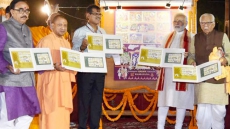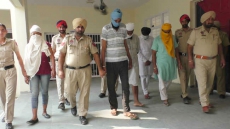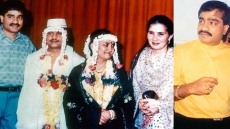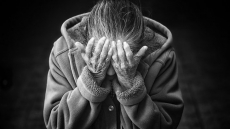Abandoned by her family, an elderly and wrinkled woman lies crumpled on a hospital bed here, maggots falling off one of her decaying hands.
The Ramakrishna Mission Hospital says the woman was found on a street. She was in terrible agony when she was admitted. Every day, as nurses and staff clean her hands, the maggots drop from soggy flesh.
The anonymous woman is expected to survive. But it will be a long road to recovery.
For now she gets daily visits from activists aligned to a spiritual group who, since starting work on a modest scale in this Hindu holy town in late 2014, now cater to the needs of around 4,000 destitute widows.
The volunteers, easily recognised by the blue jackets they wear, talk to her lovingly and assure her that she will get better.
The traditional attachment of poor Hindu widows to Vrindavan is well known. What is lesser known is the daily suffering most of them undergo.
Many have been dumped by their families or get irregular visits by those who still care for them. Although divinity was the reason they chose to come to Vrindavan from various parts of India, the struggle for basic needs makes life very difficult.
The suffering becomes acute when the women fall ill. That's when they realise the extent of their loneliness. Charitable institutions may provide free medical care but visiting crowded hospitals is a pain.
"The usual approach to help widows lay in collecting donations and giving them what they wanted," said Manjunath Kini, 50, who heads the Paramhansa Yogananda Public Charitable Trust.
"But such an approach lacked a long-term framework," Kini told IANS. "We have an approach that is more comprehensive, more sustainable and more need-based. We want to restore the women's divinity and dignity."

According to one count, Vrindavan, the land of Lord Krishna and located 140 km south of New Delhi, is home to some 4,000 Hindu widows. But others here say the number may be double, perhaps as high as 10,000.
Most are in ashrams run by religious bodies. Many live on their own, in small, dingy rooms. Almost everyone depends on charity for food and shelter. Long hours are spent in prayers and devotional music.
"Health issues are very, very important," Kini said. "Our primary focus is on the destitute."
The organisation's activists, with their distinct dark blue jackets, daily ferry, on e-rickshaws, the ailing widows to hospitals, help them to see the doctors and get medicines and then drop them back.
It is time consuming work. Most widows are in the 50s to 80s. A few are even in the 90s. The most frequent ailments are fever, fractures, monkey bites -- Vrindavan is overrun by monkeys -- and diabetes.
"We provide attendants round the clock," says Rajesh Kumar Pandey, Kini's colleague. "Without us, it will be near impossible for the elderly to go to the crowded hospitals."
Now and then, the activists also come across sickly and abandoned "sadhus".
One, reportedly from Udipi in Karnataka, was spotted in a drain, barely alive, suffering from multiple ailments, Kini said. He was rushed to a hospital but unfortunately died.
"Now that our work is well known, even locals who feel they have been left to fend for themselves by their families seek our help," Kini added.
Donations are used to buy utensils, food, bed box, linen, medicines, stove, groceries, buckets and worship items and much more for distribution to the widows.
"We visit widows every day, talk to them and see how they are doing and what help they need," Pandey told IANS. "We feel service to the poor and destitute is the best way to serve God."






